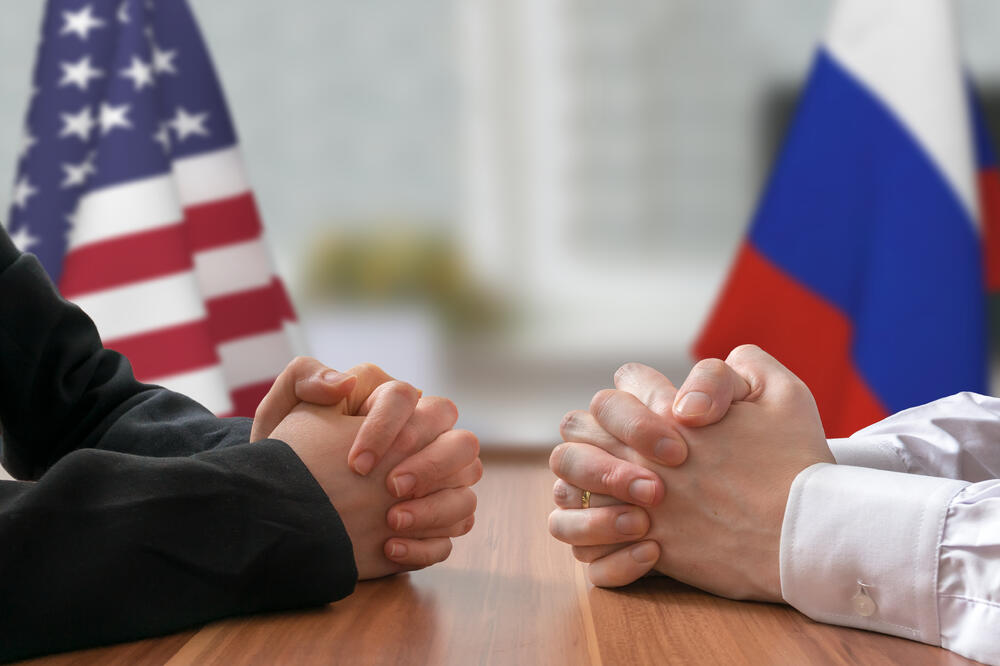The question of relations between the West and Russia has been overshadowed by media reports about hacker attacks, sex scandals and potential blackmail. Former British spy Christopher Steele's dossier on what US President Donald Trump was doing in Moscow a few years ago may prove to be as true as the statements that Saddam Hussein had weapons of mass destruction. And maybe it doesn't show. We just don't know that. It is only clear that such stories distract attention from the task of building bridges across the diplomatic chasm that now separates Russia and the West.
Westerners, and even those with Russian roots (like myself) find it hard to be sympathetic to Vladimir Putin's Russia. I can't stand the way his government is using the "foreign agents" law to track and shut down NGOs. I cannot stand the human rights violations that come from that government, murders, dirty tricks, and also the use of criminal acts to intimidate political opponents.
But it seems undeniable that today's illiberal, authoritarian Russia is as much a product of deteriorating relations with the West as it is a product of Russia's history and the threat of disintegration it faced in the 1990s.
The sources of this deterioration lie in the Russian conviction, based on a strong dose of paranoia and misunderstanding of post-communist history, that the West, and especially the USA, are making aggressive plans against it. It is not true that Russia readily renounced its empire to join the West, and that the West rejected it. The USSR was too senile to maintain its post-war conquests or even its pre-war borders. The peoples of Eastern Europe, as well as those within the USSR, were happy to be freed from the Kremlin's control.
Nevertheless, Dmitry Trennin, director of the Carnegie Moscow Center, points out that Robert Gates, who was the head of the CIA in the early 1990s, later admitted that the West, and especially the US, "completely underestimated the scale of Russian humiliation after the defeat in the Cold War." The spectacle in which "American officials, scientists, businessmen and politicians" arrogantly "explain to the Russians how to conduct business" inevitably "caused a deep and lasting feeling of bitterness and anger."
In this context, the expansion of NATO by the accession of the Baltic countries in 1999-2004. it was, in my opinion, a serious mistake. I remember a prominent Russian liberal telling me in the 1990s that a democratic government in Moscow is a more serious guarantee against Russian adventurism than a NATO army in Vilnius.
Russia's initiative to join NATO in 2001 and 2002 was, as expected, rejected. The main post-communist task of NATO became the protection of Eastern Europe from Russian revanchism. And at the NATO Summit in Bucharest in 2008, Russia received a slap from the then Secretary General of the Alliance, Jaap de Hop Scheffer, who declared that "at some point" Ukraine would join NATO. NATO leaders rejected Schaefer's position at that same summit, but many Russians nevertheless came to the conclusion that any place from which Russia withdraws the West will immediately occupy it, without any neutral or buffer zones. Putin called Ukraine's accession to NATO a "direct threat" to Russia.
Although both Russia and the West express support for a rules-based international order, both sides, when it suits them, ignore the UN Charter, blaming the other side for hypocrisy. Did any Western politician pay attention to the warnings of competent Russian politicians that the NATO bombing of Serbia in 1999 and the subsequent separation of Kosovo from it - in both cases violated international law and the UN Charter - could set a dangerous precedent?
Regardless of the obvious corruption of the President of Ukraine, Viktor Yanukovych, and his violation of his promise to sign the association agreement with the European Union, Russia saw only the hand of the West in the popular uprising, which ended with the overthrow of Yanukovych. For its part, the West unanimously condemned the annexation of Crimea that followed and Moscow's covert military support for the pro-Russian separatist uprisings in the Donbass in eastern Ukraine.
From the point of view of realpolitik (Realpolitik), Putin's Ukrainian intervention was a catastrophic mistake: apart from the economic sanctions, which the country is exposed to as a result, Russian policy definitely turned Ukraine towards the West. Since ties with the USA and the EU began to break, Russia, in order to strengthen its weakened geopolitical positions, tried to establish a Eurasian alliance with China. But for both countries it is not the most favored partnership.
Trenjin believes that the West should fear Russia's weakness more than its imperial ambitions. A fundamental shortcoming of post-Soviet Russia is its inability to modernize its economy. The Putin-Medvedev government, which has been governing the country for the past 17 years, could not save it from the "oil curse". The fact that the country continues to depend on resource income leads to corruption, authoritarianism and foreign political adventurism, which should be a substitute for general material prosperity.
The Trump administration is preparing to lead new policies and build bridges. Trump proposes a "deal" - the lifting of Western sanctions against Russia in exchange for an agreement to reduce nuclear arsenals. That would be a good start that increases mutual trust.
There are, as a minimum, three positive factors that can be relied upon. First of all, Putin's foreign policy outbursts were characterized not only by opportunism, but also by caution. He speaks loudly, but understands the limits of his capabilities. After scoring points in Georgia and Ukraine, he began to retreat. He's a gambler, but he doesn't gamble too much.
Secondly, the Russian thesis of "multipolarity" can be very useful for international relations. Against the backdrop of weakened American power and strengthening Chinese power, the restructuring of international relations becomes inevitable. The rules of the game, established at the time of US dominance, will have to be re-examined in order to reconcile different interests and attitudes. Russia could play a constructive role in that revision if it does not overestimate its strength.
Finally, Russia has shown (by participating in the nuclear deal with Iran and liquidating Syria's chemical weapons) that it is able to work with the US for mutual interests. And, in my opinion, Putin's "realism" in the form of providing military support to Syrian President Assad looks better than the West's futile attempts to organize a "political solution". If successful, millions of refugees could return to their homes.
The clash of values between the two sides will continue. However - provided that the West treats Russia and its interests with respect - there is no reason not to establish much better and more constructive business relations between them.
The author is a professor emeritus of political economy at Warwick University, a fellow of the British Academy of History and Economics and a member of the British House of Lords.
Copyright: Project Syndicate, 2017.
Bonus video:





